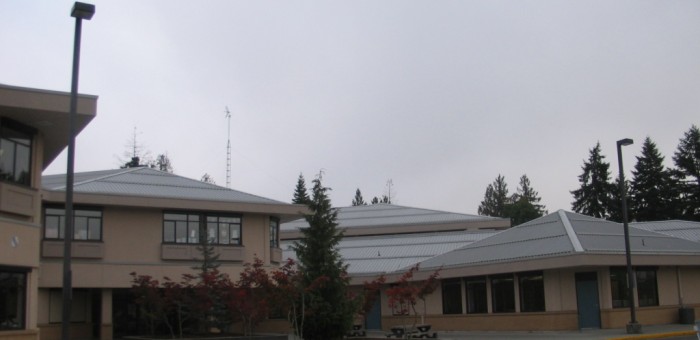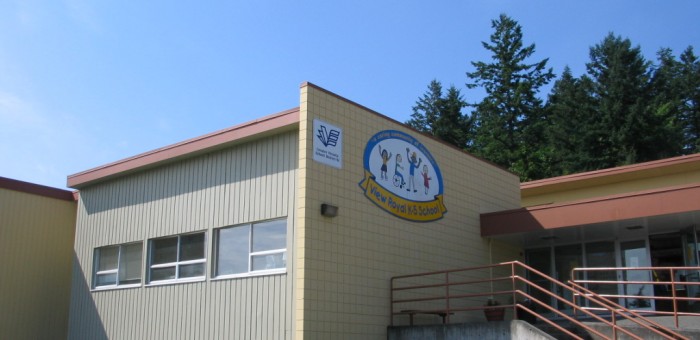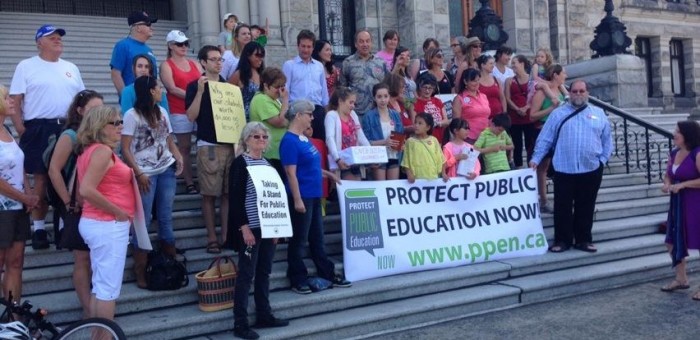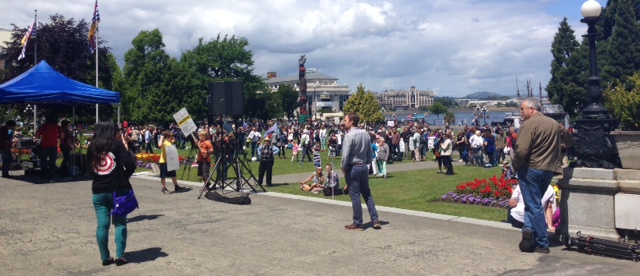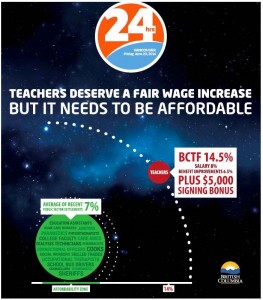Education
Andrew Weaver Welcomes BCTF call for Binding Arbitration
Media Statement – September 5th, 2014
Andrew Weaver Welcomes BCTF call for Binding Arbitration
For Immediate Release
Victoria B.C. – Andrew Weaver, MLA for Oak Bay-Gordon Head and Deputy Leader of the BC Green Party welcomes the call today from the BC Teachers Federation for binding arbitration in the ongoing education dispute.
“It’s time to resolve this dispute and get our children back into the classroom,” says Andrew Weaver. “The signs are clear that mediation isn’t working; we need another way to bring the two sides together. Binding arbitration is a perfectly reasonable request. The government will look entirely unreasonable if they do not agree”.
Andrew Weaver called for binding arbitration on Sunday after talks with Vince Ready broke down, leading to another week of strikes in a dispute that has already stretched on for months.
The announcement today from the BCTF offers a realistic, fair and practical means of ending the ongoing labour dispute.
Together, both the BCTF and the government could apply to the Chief Justice of the British Columbia Supreme Court to appoint an arbitrator. Schools could be reopened as the arbitration process progresses.
“I have been inundated with emails from parents and teachers from all over British Columbia” notes Andrew Weaver, “it is clear to me that most British Columbians from all corners of this province would support the call for binding arbitration”
Media contact
Mat Wright – Press Secretary, Andrew Weaver MLA
1 250 216 3382
mat.wright@leg.bc.ca
Get the Deal Done! Rally for Education
Today I have the honour of speaking at a rally for public education (video below).
More than a thousand teachers and parents rallied at the Legislature on September 2nd calling on the BC Government and the BC Teachers Federation to get the deal done and start the school year. This was meant to be a day where teachers were greeting their new classes and preparing for a complete academic year, but with a squandered summer and no signs of bargaining in the near future, schools remain closed.
Speech at the Legislature Rally
The level of funding allocated to our public education system depends on the priorities of the government. Spending on health care has remained a priority since 2000, ranging between 7 and 8% of provincial GDP. Education funding as a percentage of the provincial GDP has declined from a high of about 6.4% in 2001-2002 to an estimated low of about 5.0% in 2014-2015 (a decline of about 22%). If British Columbians deem education to be as important as I do, surely this drop needs to be rectified.
In terms of student achievement, our public education system ranks as one of the best worldwide. Every three years the Programme for International Student Assessment evaluates the performance of students internationally in three subject areas: mathematics, science and reading. The Council of Ministers of Education, Canada further breaks down the Canadian results on a province-by-province basis. British Columbia consistently performs extremely well. In 2012, for example, British Columbia was the top Canadian province in reading and science and was second only to Quebec in mathematics. In fact, British Columbia students even performed better than students from the much touted education system in Finland in reading and mathematics. While Finland scored slightly ahead of BC in science, the difference was statistically insignificant.
The success of our students is due, in large part, to the quality, professionalism and dedication of our school teachers, administrators and support staff.
Without a labour deal that addresses the main concerns of teachers, who battle daily to support their students, we risk losing not only a substantial portion of this school year but also the exceptional standard of education that we have come to be so proud of.
It is time to once again make education a priority in British Columbia.
Andrew Weaver Calls on BCTF and Government to Agree to Binding Arbitration
Media Statement – August 31st 2014
Andrew Weaver Calls on BCTF and Government to Agree to Binding Arbitration
For Immediate Release
Victoria B.C. – Andrew Weaver, the MLA for Oak Bay – Gordon Head is calling on the British Columbia Teachers Federation, the British Columbia Public School Employer’s Association and the Provincial Government to immediately agree to binding arbitration to resolve the ongoing contract dispute, and to suspend the strike and lockout.
The departure of mediator Vince Ready from the talks this weekend portends to more than the first few weeks of September without classes for the over 550 000 students enrolled in public schools, their 41 000 teachers, and the thousands of support staff who were due to begin the school year this week.
The government has stated it will not recall the legislature early or introduce back to work legislation when MLAs return for the fall session in October. A framework to continue bargaining has not been established and no talks are scheduled leaving teachers, students and parents with little hope for an early resolution.
“The signs are clear that this dispute could stretch for months which will severely disrupt the lives of students, their parents and teachers, as well as their school support staff. I have been inundated with calls and emails from educators and parents desperate for a solution as the realization is hitting home a good part of the school year could be lost.” said Andrew Weaver. “There is a path forward, there is way to get classes started, and that is with the BCTF and government agreeing on binding arbitration and an immediate suspension of the strike. It takes leadership and resolve to do what is in everyone’s best interest.”
Media contact
Mat Wright – Press Secretary, Andrew Weaver MLA
1 250 216 3382
mat.wright@leg.bc.ca
Protect Public Education Now Rally at the Legislature
 Today I had the honour of attending and speaking at the Protect Public Education Now (PPEN) rally at the BC Legislature at 2PM. A petition of more than 11,000 signatures calling on the government to “Negotiate with teachers to protect public education” was presented by PPEN spokesperson Jordan Watters and grade 8 student Julia Pante to NDP MLA and Education Critic Rob Fleming. Rob will be passing along the petition to the Premier’s office.
Today I had the honour of attending and speaking at the Protect Public Education Now (PPEN) rally at the BC Legislature at 2PM. A petition of more than 11,000 signatures calling on the government to “Negotiate with teachers to protect public education” was presented by PPEN spokesperson Jordan Watters and grade 8 student Julia Pante to NDP MLA and Education Critic Rob Fleming. Rob will be passing along the petition to the Premier’s office.
A box containing thirty apples, representing a typical class size in British Columbia, was presented to NDP MLA Jenny Kwan. Twenty six of these apples were red and four were green. The green ones signified that in 2013-2014, 16,163 out of a total of 68,020 classes (24%) in British Columbia public schools contained four or more students with Individual Education Plans (IEPs). This is a 57% increase from 2007. Jenny will also be delivering the apples to the Premier’s office.
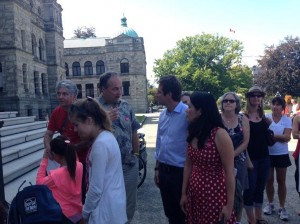 I was presented with a sapling apple tree that my office will nurture until such time as the government and the British Columbia Teachers’ Federation reach an agreement. Everyone hopes that such an agreement will reflect an adequate investment in public education and if so, the sapling will be ceremoniously planted so that it can bear fruit for generations to come.
I was presented with a sapling apple tree that my office will nurture until such time as the government and the British Columbia Teachers’ Federation reach an agreement. Everyone hopes that such an agreement will reflect an adequate investment in public education and if so, the sapling will be ceremoniously planted so that it can bear fruit for generations to come.
Thank you to all who attended and especially to Marlene Rodgers and Jordan Watters for putting the event together.
Government Corrects Math, Needs Lesson on Communication
In an earlier post, I took a look at the math in an ad that the BC Government placed on the the front page of 24 Hours Vancouver. In the ad the government suggested that teachers were asking for an 8% increase in salary and a 6.5% increase in benefits for a total 14.5% increase. As I pointed out, you cannot add percentages and benefits that are typically closely related to salary.
What the government was not saying is that the 6.5% was not actually benefits. Rather, it was their assessment of what the costs would be to implement the BCTF proposal. The BC Public School Employers’ Association has publicly released their costing 0f the BCTF proposal. In addition, the BC government advertisement has revised their advertisement to eliminate the breakdown of the 14.5% into 8% salary and 6.5% benefits.
Initial Advertisement New Advertisement
Let’s take a close look at the government position. First, please let me reiterate. I am dismayed at the approach that seems to be occurring with respect to negotiation via press release and media statement. That is certainly not how I would expect respectful negotiations to proceed.
The BCPSEA costed summary table is reproduced below. In it, BCPSEA present their offer to the teachers and the BCTF demands of government. Most reasonable people would read this and wonder why the government’s position is an offer and the teachers’ position is a demand. It strikes me as an unfortunate choice of words that certainly does not aid in bringing parties together.
 So what’s actually in the teachers’ so-called compensation demands? Further inspection of the BCPSEA costing reveals the following:
So what’s actually in the teachers’ so-called compensation demands? Further inspection of the BCPSEA costing reveals the following:
Teachers’ Proposed Wage Increase
- July 1, 2014: 3.5% increase
- July 1, 2015: 1.5% increase
- July 1, 2016: 1.5% increase
- July 1, 2017: 1.5% increase
If a teacher’s current salary is T, then on July 1, 2017 it would be (assuming no change in seniority):
T × 1.035 × 1.015 × 1.015 × 1.015 = T × 1.082
That is, the teacher’s salary would increase by 8.2% (not 8%). Someone forgot to compound the increase in the original ad above while taking great care to use two significant figures to represent benefit increases.
And when you take closer look at the BCPSEA release they state this: Total Compensation is defined as all wages, wage-impacted benefits, and non- wage impacted benefits
It turns out that more than half of the “6.5% benefit improvements”, reported in the initial advertisement shown above, is to provide elementary school teachers with enhanced preparation time. This strikes me as a “working condition” not a “benefit” . Obviously I recognize that there are costs associated with improving working conditions, but to call this a”benefit” is a bit of a stretch.
Finally, I think it’s time for the government to pull back from attaching value added rhetoric and spin in its communication with the public about the ongoing negotiations with the BC teachers. Teaching is perhaps the most important profession in our society. After all, each and every one of us has attended school and that experience has shaped who we are, what we do and how we contribute to society. And let’s not hide behind the “it’s not affordable” mantra. Government is tasked with making choices. As I mentioned in another earlier post, education funding as a percentage of the provincial GDP has declined from a high of about 6.4% in 2001-2002 to an estimated low of about 5.0% in 2014-2015 (a decline of about 22%). If British Columbians deem education to be as important as I do, surely this drop needs to be rectified.
So are the BCTF and government really that far apart in terms of their positions? I think not. I am hopeful that with the timely appointment of a mediator, a negotiated settlement could be reached fairly quickly. But it’s important to put politics and historical differences aside. After all, our children are the next generation and it behoves us as a society to treat their education seriously.
Interview with Gregor Craigie – On The Island, CBC Radio, Victoria – June 24th, 2014

